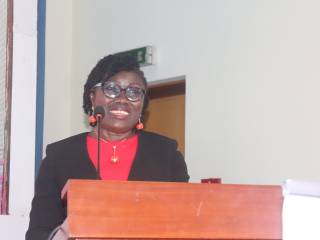The Commission formulated a strategic Vision Plan known as the 8-Point Agenda to achieve this stated the Executive Vice Chairman of the Nigerian Communication Commission, Professor Umar Garba Danbatta, through Funlola Akiode, Director Licensing and Authorization, NCC.
In line, with the theme of the conference ‘Africa Tech Renaissance’, the EVC noted that the Commission has been implementing programmes and policies aimed at deepening broadband penetration, which is at the core of any technological renaissance in Africa.
“This commitment will help us to accelerate the attainment of out targeted 30 percent broadband penetration by the end of 2018. So far, broadband penetration in the country stands at 22 percent penetration index.
“As part of our Open Access Model to reinforce efforts at achieving ubiquitous broadband services, we are Licensing seven Infrastructure Companies (InfraCos) to provide metropolitan fibre Infrastructure in Lagos and the six geo-political zones in the country”, she said.
The EVC reiterated that when this infrastructure is fully operational, the deployment would complement the existing infrastructure of Broadband services that will have a far-reaching impact on the economy.
The Commission is also engaging necessary stakeholders to address the extant challenges to telecoms infrastructure deployment, such as ‘Right of Way (RoW) issue, multiple taxation, multiple regulations, vandalism, fibre cuts, equipment theft at sites, and indiscriminate closure of telecoms sites by state agencies etc, which affect Quality of Service (QoS).
The Digital Africa Conference & Exhibition, which is in its 6th edition, is a platform for policy makers, industry stakeholders, academics and many advocate groups to network and share their knowledge in achieving an inclusive technological development across the African continent.

